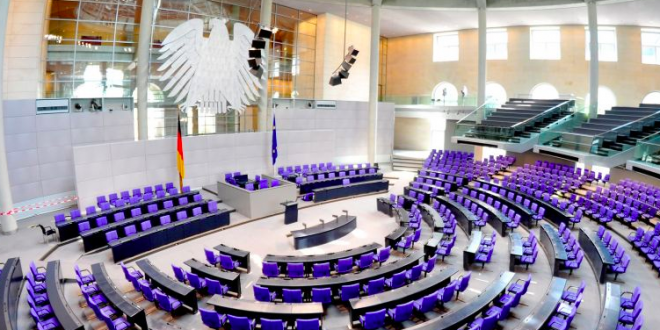GVC’s Director of Regulatory Affairs Martin Lycka revisits the online gambling laws in Germany and sees what the ‘sixteen kings’ have in store for the industry.
____________________
Habemus State Treaty. After years of thick black smoke, white billow has spewed out from the tiny little chimney perched on the roof of the German Gambling Chapel. The sixteen cardinals dispatched by the once accursed sixteen kings have after long deliberations elected how to regulate online gambling in their land; a compromise has been reached between the pragmatists and the naysayers, the years of competing antipopes might be coming to an end in the foreseeable future.
Following an oral hearing of the gambling folk, the new regulatory “charter” will now be presented to the sixteen kings for their signatures on 12 March 2020 and subsequently circulated amongst the Imperial scribes of Brussels for review. Once back from the Imperial court the sixteen Parliaments of the enlightened gambling monarchies will be invited to ratify the new charter so it can enter into effect on the first day of July of our Lord 2021. That day will mark the beginning of the implementation era of the charter, at first by means of establishing the noblest regulatory body that will be entrusted with the task to give life to the new regulation.
The regulation, as it stands at the time of writing, treads a very fine line between market liberalism and puritan conservatism that reflects the widely divergent views on online gambling at its heart. The regulation permits all categories of online gambling products, including sports betting, online slots, poker as well as casino table games.
However, most of the products are proposed to be subject to rather invasive restrictions, some of which are novel in their design and yet to be tested in terms of their efficiency. One could go as far as arguing that not all of them are suitable to contribute towards achieving the intended objectives of the State Treaty, especially in terms of steering the existing online gambling offer into licensed channels. Some of the regulatory constructs could also be seen as potentially at odds with European Union law.
The 2021 State Treaty puts forward changes to the 2012 regulation of sports betting. The statutory wagering limit will be replaced by a statutory deposit limit of one thousand euros a month that can be increased dependent on individual customer’s affordability. Additional markets are expected to be permitted for in-play, going beyond the currently existing restriction modelled around the final score and markets connected to it. Yet, the in-play markets may end up being hard-coded into a catalogue of permitted sports and market types subject to supervision by the future gambling authority, i.e. a concept that for example, the Spanish regulation let go for lack of flexibility and efficiency years ago.
Online slots and poker are proposed to be licensed on a Germany wide basis; both product categories will be subject to regulatory restrictions. The slot related ones, in terms of the average minimum duration of the spin and maximum wager are set out in the draft State Treaty, which at the same time grants the future regulator discretion as to increase the maximum spend per pop on the basis of affordability. Applicable poker requirements will be determined in individual poker licences when issued in the future.
Online casino games have turned out to be the main battlefield between liberalism and conservatism; as a result, their detailed regulation will have been left in the hands of the individual German states that will have a large variety of options to choose from. The options will range from a state monopoly to a local concession system, with several shades of regulatory grey in between.
An additional twist to the casino tale is the fact that the individual states will acquire a right to enter into collaboration agreements in relation to casino table games, effectively extending the territorial scope of the future licence. The regulatory twist needs to be seen as an opportunity for the liberal corner to fish these games out of the regulatory shadows.
The 2021 Treaty intends to put several restrictions on cross-selling and simultaneous play, including some that are seemingly designed to replicate distance and other restrictions that exist in the retail gambling world.
I have to admit that I struggle to see how in the modern days of sophisticated online audit trail such restrictions can help achieve safer gambling objectives. I would even suggest that the restrictions may not only prove to be dubious from the EU law perspective but also end up being grist to the mill of the true black market operators; the operators who have no interest in applying for German licences and are bound be on a lookout for any opportunity to lure customers in, owing to the onerousness of the future regulatory regime.
All in all, the smoke belching out of the German Gambling Chapel chimney should rather be tinged with darkish grey as opposed to being pure white. Germany will finally become a regulated market, but the cardinals would perhaps be best advised to call yet another conclave to debate how productive some of their proposals will be in practice.
Martin Lycka is Director of Regulatory Affairs at GVC Group. Before that he spent nearly ten years at Paddy Power Betfair working on international markets. Views expressed are personal and not necessarily those of GVC Group.









